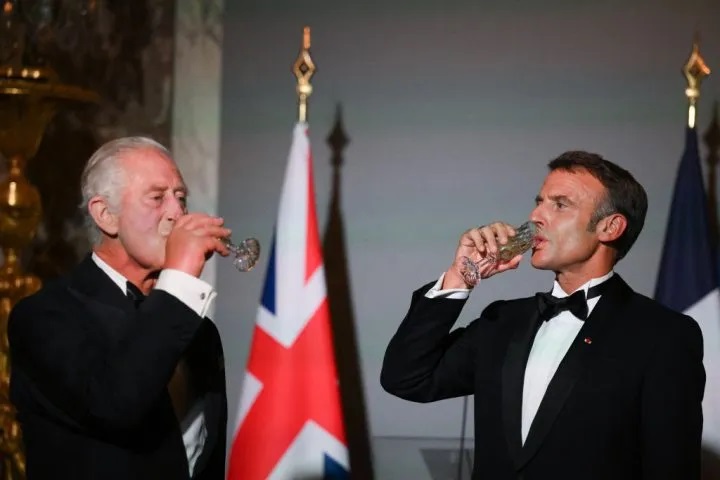In the last years of Louis XVI’s reign, French finances were in a parlous state. State debt had ballooned, its servicing became exorbitant, and France’s creditworthiness sunk. The need to raise taxes after years of profligacy forced the monarch to summon the Estates General — the first time since 1614 — to obtain their approval. A series of scandals linked to the monarchy fueled popular anger. All ushered in the July 1789 Revolution.
Against a background of French debt at 112 percent of GDP, a budget deficit of 5.5 percent and the European Union taking out special measures against France for persistently ignoring the EU stability pact, this week France’s independent auditing court poured gasoline on the flames. They published a report criticizing excessive expenditure at the Elysée Palace.
Money is the sinew of any state
French taxpayers annually pay more for the presidency ($120 million or $100 million in 2022-3) than the British for the monarchy ($94 million in 2022-3). But this year, the Elysée’s opulent spending on state visits, from Charles III to Narendra Modi, and President Emmanuel Macron’s lavish foreign trips worsened racking up an $9 million deficit. “What cost the glitter of the Republic?” asked Le Figaro.
France’s parliament last met on July 20 following the presidential camp’s stinging defeat in the July 7 snap general election. With no parliamentary majority, France has no new cabinet, merely a presidentially-appointed caretaker government. But the summer recess and Olympic truce decreed by Macron can only last until parliament is constitutionally obliged to reconvene by October 1. That is also the last date for the 2025 finance bill to be laid before parliament. But the national assembly’s trilateral split between left, right and centre will make voting a budget a formidable endeavour and expose France’s perilous finances to the vagaries of international financial markets.
The moment Louis XVI convened the Estates General, he lost control of the country. The moment the national assembly is reconvened, France’s “republican monarch” will cede power to the parliamentary chamber. The constitution provides for either a new prime minister to call an extraordinary session of parliament or for a majority of members of parliament to do so. The former is less likely than the latter. Though most legislation cannot be scheduled in the absence of a government, members can decide their own business.
The chamber has already decided that October 31 will be a day for parliament’s own business, notably the largest party’s privilege of tabling its own bill. That falls to Marine Le Pen’s Rassemblement National. It has already decided, in line with its manifesto, that it will introduce a bill to abrogate the nationally unpopular pensions’ reform brought in without a vote by Elisabeth Borne’s government last year. Abrogation was also a manifesto pledge of the left wing Nouveau Front Populaire (NFP). Together both groups command an absolute majority. It will be a test of the NFP’s “republican” principles as to whether it can bring itself to vote for an RN bill, just as in 1789 the clergy struggled to combine with the Tiers État.
Adding complexity to suspense, on July 23 the NFP itself tabled a bill to abrogate the retirement law. But this is conditional on it being included in the parliamentary timetable, which is by no means a given. Ever since it became the largest grouping in the new national assembly, the NFP has called on Macron to allow it to form a government. He has refused. But were he to relent, it could schedule that bill for September. The NFP’s putative prime minister, Lucie Castets, a radical thirty-seven-year-old senior civil servant, has stated that abrogation of the retirement law is “a priority:” The RN has said it would vote for the bill. The cost will be considerable.
Once Louis XVI had convened the Estates General in May, the three Estates worked until June to form a national assembly. The more the sovereign resisted change to convert an absolute monarchy into a constitutional one on the British model, the more the Assembly was radicalized. Much of that radicalization turned on the struggle for control of public finances until finally it voted in September 1792 for a republican regime and eventually, on January 21, 1793, regicide.
Money is the sinew of any state. France can either cull its expenditure or levy more taxes. A majority of members recently elected to the national assembly favor new taxes to fund their manifestos. The occupant of the Elysée Palace, whose profligate spending has jeopardized French finances, rejects tax rises. The incendiary question of the public finances could take France down a radicalized path whose outcome few may wish to countenance.
This article was originally published on The Spectator’s UK website.


























Leave a Reply